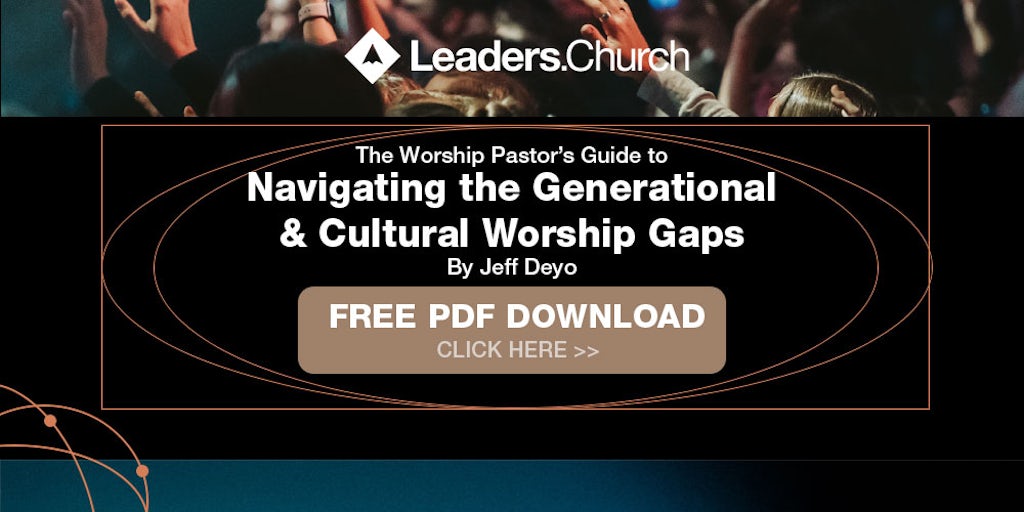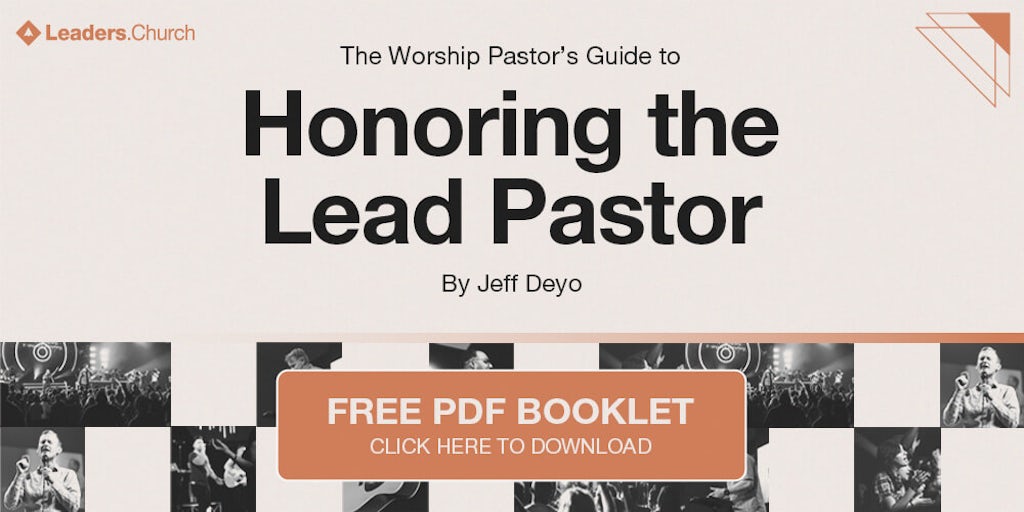
5 Biblical Reasons for Spontaneous Worship in Your Church
Once God began opening my eyes to the transformative power of spontaneous worship, I immediately started to educate our teams and our community on its biblical origins. If there was any hope of grafting spontaneous worship into our worship culture, we would need to establish relevant biblical affirmation right from the get-go.
The following are some of the foundational biblical truths I’ve discovered and taught to my teams and congregation about the power of spontaneous worship.
1.The Tehillâh Praise
One of the first things I began to teach our community is the seven Hebrew words for praise. As you may or may not know, the word Tehillâh is a Hebrew word that means “to sing with songs or hymns; laudations of the spirit. The song of the Lord; spontaneous song to the Lord.” It is used frequently in the Bible, including, in all places, in Psalm 22:3. Here we learn that God inhabits—or “lives together with His people in”—the “Tehillâh” (spontaneous) praise of His people. Who knew?
The word inhabits can literally be translated “God will join Himself to our praise.” Incredible! The Amplified Bible reads, “But You are holy, O You Who dwell in [the holy place where] the praises (Tehillâh) of Israel [are offered].” This is the type of biblical expression to God that we are missing so much in our Western churches. When coupled with our regular corporate worship songs, the depth of connection with God soars to another level of transformational power.
2. Like the Wind
Another incredible biblical concept we must embrace is the way in which God’s character informs our worship expressions. If spontaneous worship really is a thing, it would most certainly spring out of who God is—from His character. Of course, He never directs us to lead His people in ways that are contrary to His own nature, especially as He invites us to become more and more like Him.
Interestingly, the revelation of “God, like a rock” is certainly one of the most foundational metaphors we have concerning God’s character. It establishes our God as One who is unchanging, orderly, reliable, and secure. These qualities are important in life and in worship. (See Psalm 18:1; 1 Samuel 2:2; Deuteronomy 32:15; Exodus 17:6)
Even so, we must equally lean into the metaphor of “God, like the wind.” Here, we are reminded that our God is the God of newness, creativity, surprises, and freedom. Also qualities that are important in life and in worship. (See John 3:8; 2 Samuel 22:11; Job 38:1) God is both a rock AND a wind, and our worship leadership should embody both metaphors—the scripted (the rock) and the unscripted (the wind).
3. The New Song
A third phenomena we simply cannot ignore is the Bible’s incessant use of the term new song. In fact, in The Lost Art of Pure Worship, fellow author Sean Feucht informs readers that the phrase sing a new song to the Lord is repeated eighty-seven times in the Bible. This is compelling when it comes to resisting our tendency to regurgitate the same old songs again and again.
Bob Sorge’s teachings also aim to keep us in balance. He often reminds us that old songs gather and that new songs propel. (Of course, God’s command to “sing a new song” doesn’t refer only to spontaneous songs, but also to adding new corporate songs to the set list as well, even as we enjoy older, familiar songs.) What we discover is that “known songs” and “spontaneous songs” actually work hand in glove. “Known songs” serve to launch us beautifully into uncharted spontaneous worship, only to return us, full circle, to the songs we already know. But this time, the songs we already know take on a brand-new life.
4. Singing in the Spirit
When it comes to the New Testament, significant encouragement on spontaneous worship can be gleaned from Paul’s writings. In 1 Corinthians 14:15: “Well then, what shall I do? I will do both. I will pray in the spirit, and I will pray in words I understand. I will sing in the spirit, and I will sing in words I understand.”
While this passage doesn’t specifically tell us that Paul is singing spontaneously, we shouldn’t imagine he would be doing anything else if he is singing in the spirit (singing in tongues). How else would you sing in the Spirit? There are no pre-written phrases to learn, only unrehearsed, free-flowing unctions from the Spirit of God. We need more of this in our churches!
5. The River Hunter
One final in-depth scriptural example comes from best-selling author and pastor, Bob Sorge, from his book Following the River. He derives his “River Hunter” concept from Ezekiel 47, a chapter that unveils a metaphorical river flowing down from the temple of God bringing healing to all. The river doubles as a metaphor for God’s presence, reminding us that there are deeper and deeper depths of relational connection with our Creator.
Sorge invites worship leaders to become River Hunters as they seek to fulfill their assigned biblical task of “hunting” or “seeking” diligently for the river of God’s relational presence on behalf of the people. He reveals that many leaders fail to lead people into God’s presence because they are determined to stick to their planned lists (straight paths). They do so rather than becoming “hunters” of the largely unpredictable, twisting and turning nature of God’s supernatural love, exemplified by the meandering river (God’s Spirit).
Some worship leaders may happen by the river at certain points in a service. Yet, their inability to recognize this and change course renders them incapable of joining the river’s flow. Have you been there? Suddenly, a powerful Holy Spirit moment occurs, and one or two things happen: 1) It passes us by, because the band is ill-prepared to be anything other than a late-night cover band, or 2) another pastor steps up and utters those infamous five words, “You may now be seated.”
As worship leaders…
Our job is to search for the Lord, to listen for His voice, and to lean into His heart. On behalf of our congregation. We “hunt” for the “sweet spot” in God’s presence and direct the congregation to join Him in the flow.
At our 2016 Pure Worship Institute conference, Sorge appealed vehemently to us, “People don’t come to the house for your list. They come for the river!” As difficult as it may be for some to swallow, we must move away from a traditional “set list only” model and toward a model that balances the scripted with the unscripted.
Other Worship Leadership Articles:
6 Steps for Increasing Worship Team Effectiveness
8 Ground Rules to Run an Effective Worship Rehearsal
8 Things for your Worship Team to Rehearse
Your Guide to Smooth Transitions Between Worship Songs
7 Compelling Reasons to Avoid Chasing Culture and Style When Leading Worship
4 Great Ways to Take Your Congregation to the Next Level in Worship





